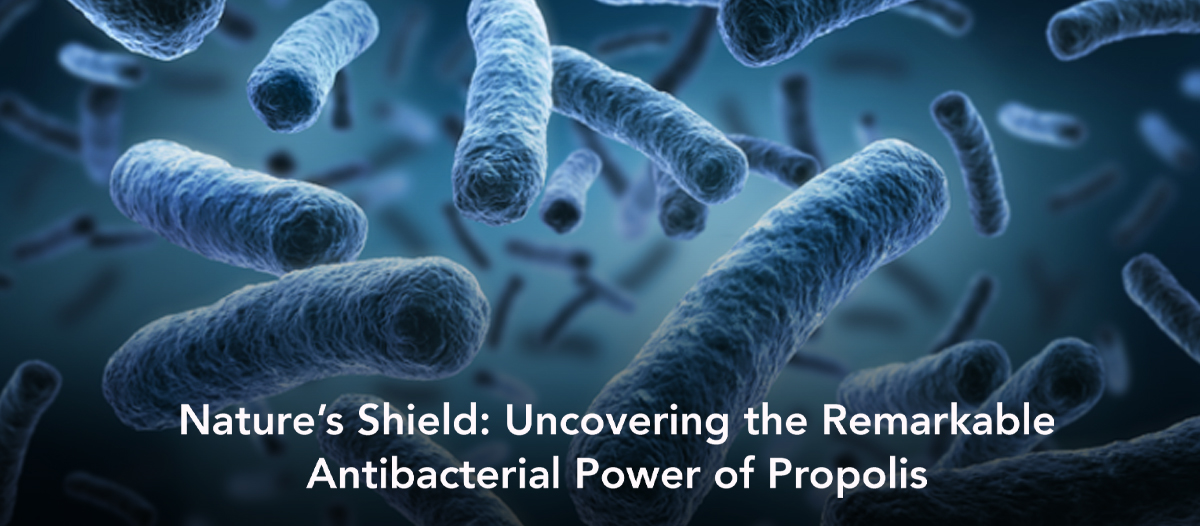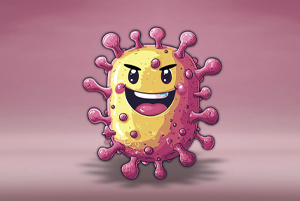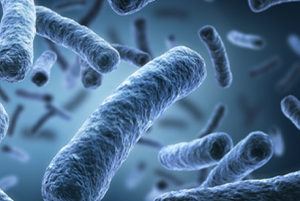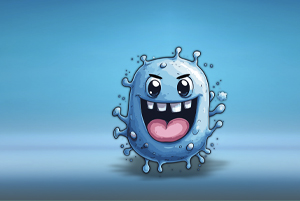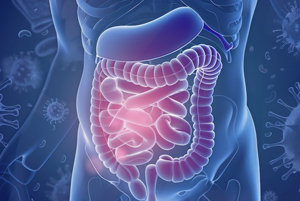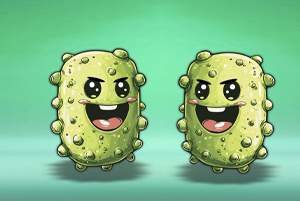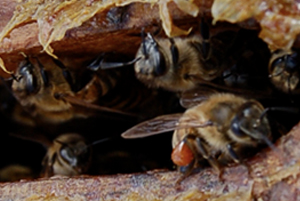Nature’s Shield: Uncovering the Remarkable Antibacterial Power of Propolis
by Mark J Kaylor
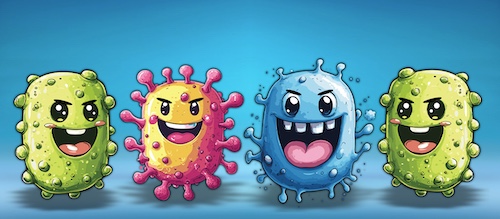 In the battle against bacteria, nature has provided an exceptional defender: propolis. Known as the “bee glue” that strengthens and protects hives, propolis is packed with powerful compounds that give it formidable antibacterial properties. From dismantling bacterial defenses and disrupting biofilms to directly killing harmful bacteria, propolis employs a diverse arsenal to keep infections at bay. As antibiotic resistance rises, propolis offers a unique, natural approach to bacterial control, blending age-old traditional medicine with promising modern research. Dive into the multifaceted mechanisms of this potent natural remedy and discover why propolis could be a game-changer in supporting immune resilience.
In the battle against bacteria, nature has provided an exceptional defender: propolis. Known as the “bee glue” that strengthens and protects hives, propolis is packed with powerful compounds that give it formidable antibacterial properties. From dismantling bacterial defenses and disrupting biofilms to directly killing harmful bacteria, propolis employs a diverse arsenal to keep infections at bay. As antibiotic resistance rises, propolis offers a unique, natural approach to bacterial control, blending age-old traditional medicine with promising modern research. Dive into the multifaceted mechanisms of this potent natural remedy and discover why propolis could be a game-changer in supporting immune resilience.
Propolis demonstrates potent antibacterial activity through a wide range of physiological mechanisms. Here’s a detailed and comprehensive list of how propolis works to inhibit and eliminate bacterial infections:
-
Disruption of Bacterial Cell Walls and Membranes:
Compounds like flavonoids and phenolic acids in propolis can compromise bacterial cell wall integrity, disrupting the membrane structure. This makes bacterial cells more permeable, leading to cell lysis (bursting) and ultimately, cell death.
-
Inhibition of Bacterial Enzymes:
Propolis inhibits essential bacterial enzymes, such as DNA gyrase and topoisomerase, that are crucial for DNA replication and cell division. This prevents bacteria from multiplying and helps contain the spread of infection.
-
Interference with Protein Synthesis:
Propolis contains bioactive compounds that can hinder bacterial protein synthesis by binding to bacterial ribosomes, thus disrupting the production of proteins essential for bacterial growth and function.
-
Suppression of Quorum Sensing:
Bacteria communicate and coordinate their activities, such as biofilm formation and virulence, through quorum sensing. Propolis disrupts these signaling pathways, inhibiting bacterial coordination, reducing virulence, and making bacteria more vulnerable to the immune system.
-
Prevention of Biofilm Formation:
Many bacteria form biofilms—a protective matrix that helps them adhere to surfaces and resist antibiotics. Propolis can prevent biofilm formation by interfering with bacterial adhesion molecules, and it can also break down existing biofilms, making bacteria more susceptible to immune cells and treatments.
-
Induction of Oxidative Stress:
Propolis promotes oxidative stress in bacterial cells by increasing the production of reactive oxygen species (ROS). This oxidative stress damages bacterial DNA, proteins, and lipids, leading to cellular dysfunction and death.
-
Reduction of Efflux Pump Activity:
Efflux pumps in bacteria transport antibiotics and other harmful agents out of the cell. Propolis inhibits these pumps, allowing higher concentrations of antibacterial agents to remain inside the bacteria, thereby increasing the effectiveness of antibiotics.
-
Inhibition of Bacterial Respiration:
Certain compounds in propolis interfere with bacterial respiratory enzymes, reducing ATP production (the cell’s energy supply). This energy deprivation limits bacterial survival and growth.
-
Chelation of Metal Ions:
Some compounds in propolis chelate metal ions, like iron and magnesium, which are essential for bacterial enzyme activity and metabolism. By depriving bacteria of these ions, propolis inhibits their growth and replication.
-
Stimulation of the Host Immune System:
Propolis can enhance the body’s immune response against bacterial infections by activating macrophages, promoting phagocytosis (engulfing bacteria), and increasing the release of immune-modulating cytokines. This immune support helps the body clear bacterial infections more effectively.
-
Disruption of Bacterial DNA and RNA:
The phenolic acids and flavonoids in propolis can directly interact with bacterial DNA and RNA, leading to breaks or other alterations in the genetic material. This damage prevents bacteria from replicating and producing necessary proteins.
-
Interference with Peptidoglycan Synthesis:
Peptidoglycan is a critical component of bacterial cell walls. Propolis disrupts the enzymes involved in peptidoglycan synthesis, weakening the bacterial cell wall and making bacteria more susceptible to environmental stresses and immune responses.
-
Anti-Adhesion Activity:
Propolis prevents bacteria from adhering to host cell surfaces, a necessary step for infection. This is especially relevant in the gastrointestinal and respiratory tracts, where propolis can prevent bacteria from attaching to mucosal surfaces and initiating infection.
-
Promotion of Apoptosis in Bacteria-Infected Cells:
By stimulating apoptosis (cellular self-destruction) in host cells heavily infected with bacteria, propolis helps the body eliminate reservoirs of bacterial infection, preventing further bacterial spread and reducing the bacterial load.
-
Inhibition of Bacterial Toxins:
Some bacteria release toxins that damage host cells. Propolis can inhibit toxin production or neutralize toxins, thus reducing the harmful effects of bacterial infections and alleviating symptoms.
-
Modulation of Gut Microbiota:
Propolis exhibits selective antibacterial activity, meaning it targets pathogenic bacteria while sparing beneficial gut flora. This supports a balanced microbiome and strengthens gut-associated immunity, which plays a critical role in overall immune defense.
-
Synergistic Effects with Antibiotics:
When combined with antibiotics, propolis can enhance antibiotic efficacy. This synergistic effect may involve inhibiting bacterial resistance mechanisms, reducing the dosage needed for effective treatment, and minimizing potential side effects of antibiotics.
-
Inhibition of Bacterial Spore Germination:
Some bacteria, like Clostridium species, form spores to survive harsh conditions. Propolis has been shown to inhibit spore germination, reducing the likelihood of infection from these resilient bacteria.
-
Inhibition of Lipopolysaccharide (LPS)-Induced Inflammation:
In Gram-negative bacteria, lipopolysaccharides (LPS) can trigger excessive inflammation. Propolis can modulate the immune response to LPS, reducing inflammatory damage caused by bacterial infections.
-
Promotion of Lysosomal Activity in Immune Cells:
Propolis enhances lysosomal activity in immune cells like macrophages, which break down bacterial cells once engulfed. This increased lysosomal activity makes immune cells more effective at clearing bacterial infections.
-
Direct Bactericidal Effects:
Beyond all these mechanisms, some propolis compounds have direct bactericidal (bacteria-killing) effects due to their inherent chemical structures, including flavonoids and aromatic acids. This direct action kills bacteria without the need for additional mechanisms.
A Natural Defense You Can Trust
As modern science continues to uncover the secrets of propolis, its role as a natural antibacterial agent only becomes clearer and more impressive. With mechanisms that rival synthetic antibiotics, propolis offers a safe, multi-layered approach to fighting bacteria without disrupting the beneficial microbes we rely on for health. In an era of growing antibiotic resistance, propolis is a shining example of how nature can support us in battling infections and maintaining a balanced microbiome. For those seeking a powerful, natural remedy, propolis stands ready, combining ancient wisdom with cutting-edge efficacy in every drop.
Mark J. Kaylor is a passionate advocate for holistic health and natural remedies, with a focus on extending both lifespan and healthspan. As the founder of the Radiant Health Project and host of Radiant Health Podcast, Mark blends in-depth research with traditional wisdom to empower others on their journey to vibrant health. Through his writing and speaking, he shares insights into the transformative power of herbs, nutrition, and lifestyle practices.
Disclaimer: All information and results stated here is for educational and entertainment purposes only. The information mentioned here is not specific medical advice for any individual and is not intended to be used for self-diagnosis or treatment. This content should not substitute medical advice from a health professional. Always consult your health practitioner regarding any health or medical conditions.



